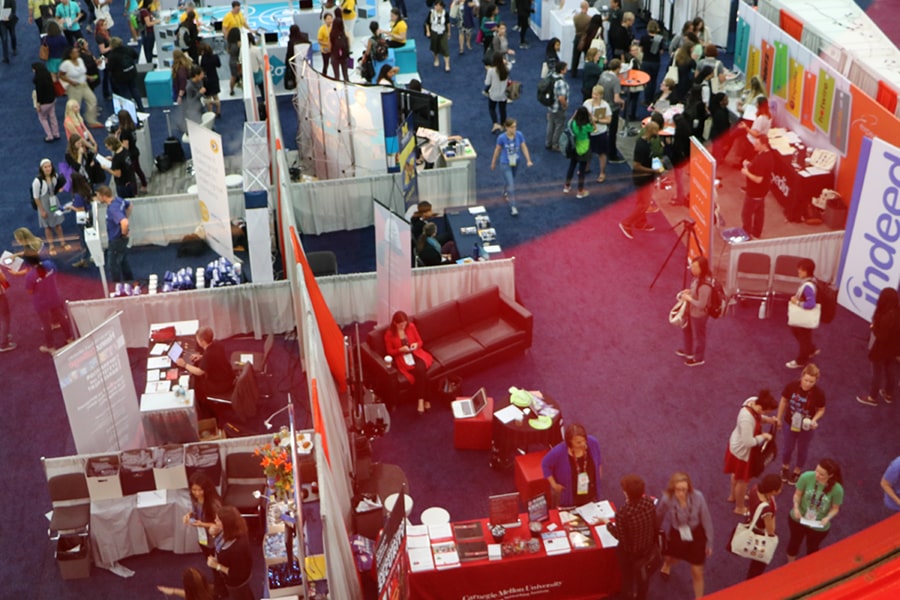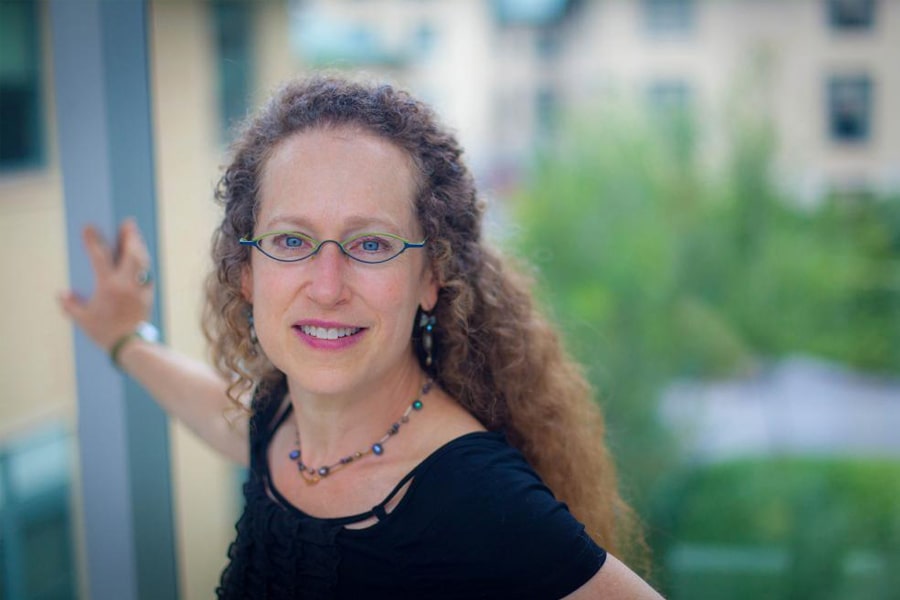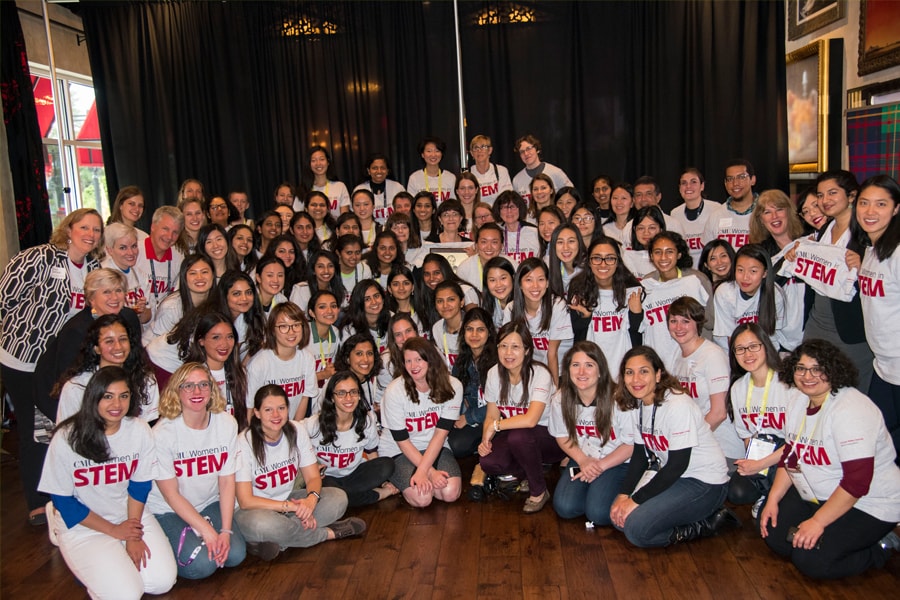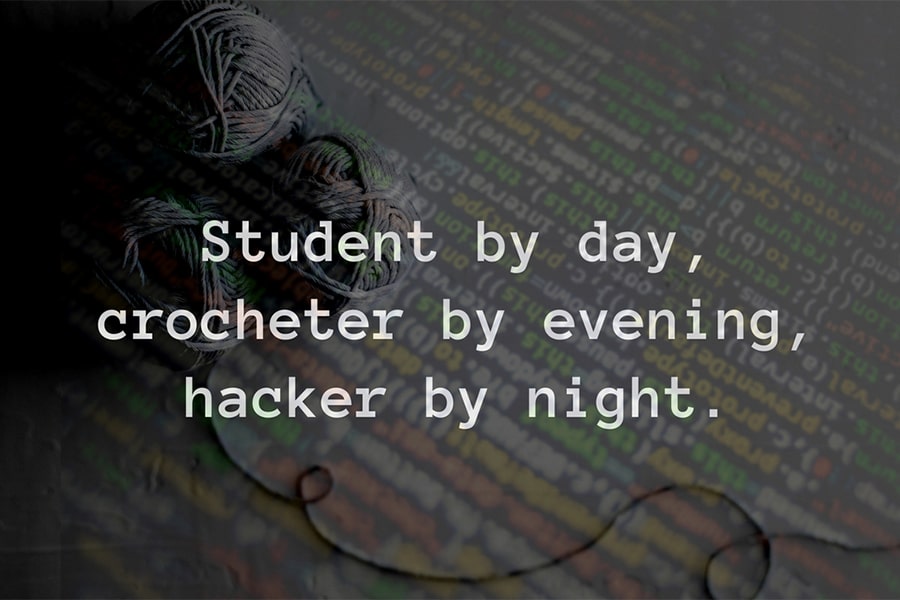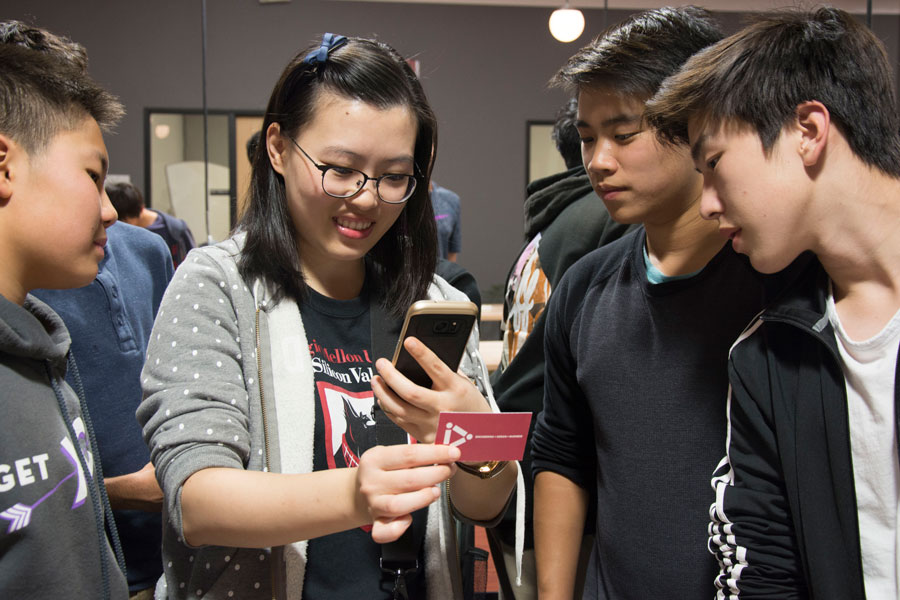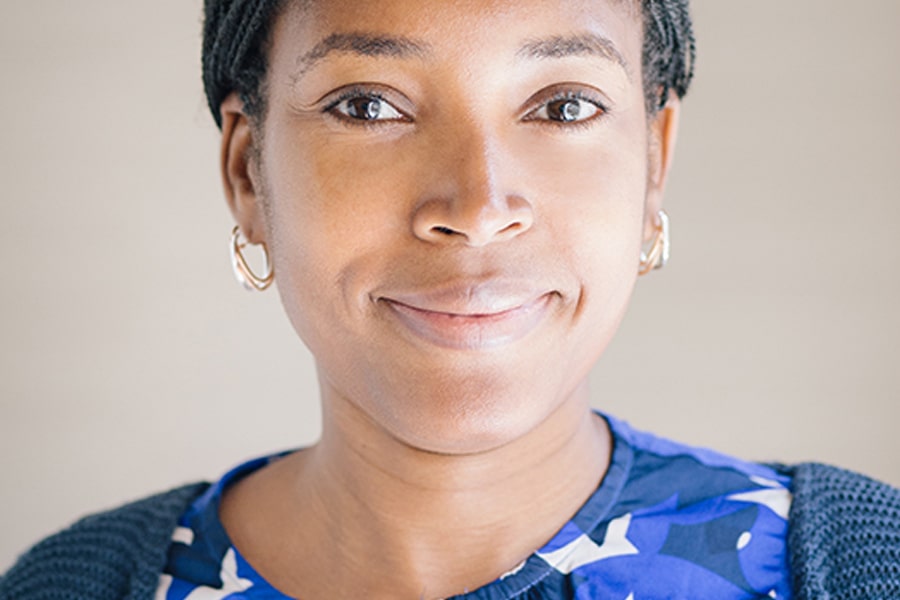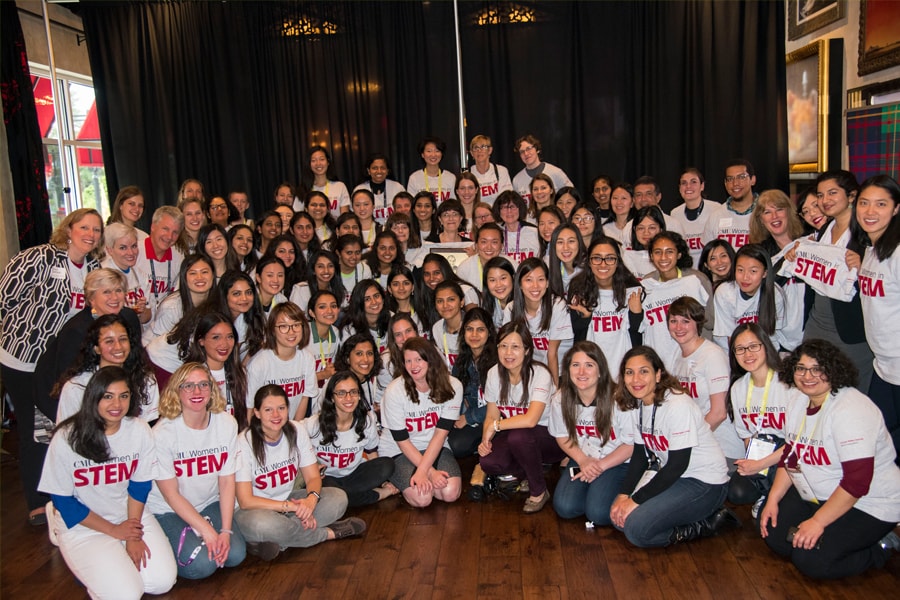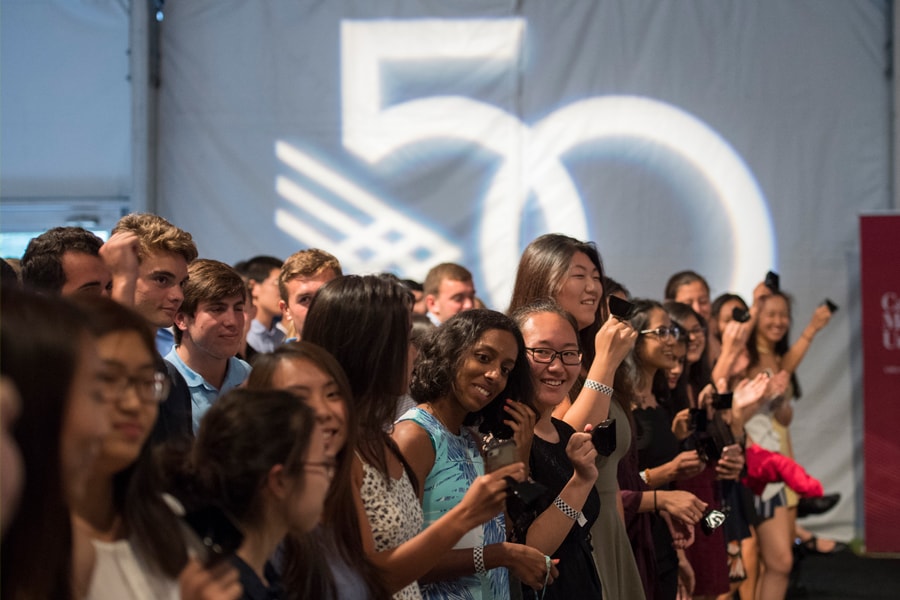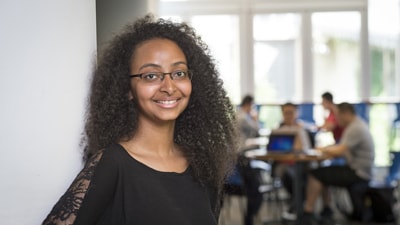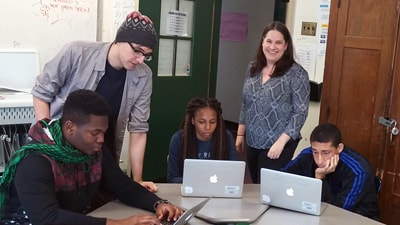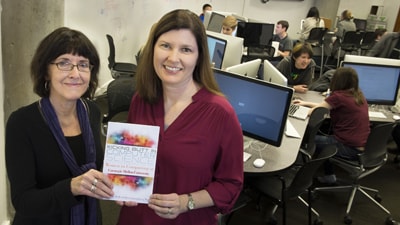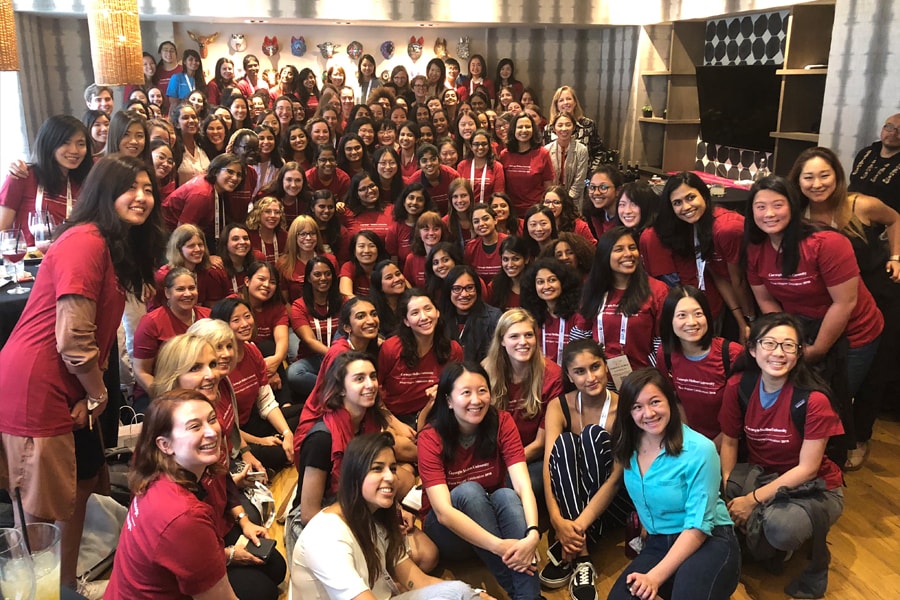
#CMUatGHC: Women in Tech Aim for More Digital Connections
By Laura Kelly
Carnegie Mellon University students, faculty, alumni and staff were among the 22,000 attendees at this year's Grace Hopper Celebration, the world's largest gathering of women technologists. More than 20 from CMU presented at last month's celebration in Houston, with dozens more in attendance. Lani Fraizer, a 2002 graduate of the Heinz College of Information Systems and Public Policy, was co-chair of this year's Grace Hopper Celebration.
Justine Cassell, associate dean of technology strategy and impact at the School of Computer Science and director emerita of the Human-Computer Interaction Institute, was one of three keynote speakers.
"I care about listening to the voices of everyone in the world, including and especially the most marginalized" Cassell said. "I build technology because it can be a way to bring everybody’s voice to the table."
The research she shared concerned the ways in which listening to one other to build rapport is important not just to build good working relationships with other humans at work, but is also a way to improve the performance of artificial intelligence systems.
“Our goal is to build AIs that collaborate with people rather than replacing them. AI with social skills is one way to achieve that goal," Cassell said.
Beibei Li, assistant professor of information systems and management at the Heinz College, presented her work with diabetes patients in her talk, "Empowering Patients with Diabetes Using Smart Mobile Health Platforms."
"There are more than 30,000 health-focused mobile applications," Li said, "It's a huge and growing space with a lot of potential. There is opportunity to capture information, facilitate disease management, patient education and real-time tracking."
Diabetes mobile health applications are perceived by many to be a game-changing tool for patients managing the disease.
"We are experiencing a disruption in health care. We are moving from reactive to proactive and focusing on prevention. The movement of digital and mobile technology can get patients engaged in self-tracking," Li said.
Dena Haritos Tsamitis, the Barbara Lazarus Professor in the Information Networking Institute, director of the College of Engineering's Information Networking Institute and a founding director of CyLab, presented "Fraud Alert: Shatter Impostor Syndrome."
Haritos Tsamitis started her talk quoting Anita Hill, who spoke earlier in the conference.
"Something she said really stuck with me," Haritos Tsamitis explained, "She said, 'The most vulnerable cannot afford to be vulnerable. But the most powerful have the license to show emotion.'"
In her presentation, Haritos Tsamitis broke down her own barriers and connected with the audience.
"My entire career — for decades — I've been hiding my feelings of self-doubt. What I'm going to share with you today is: we really need to make ourselves vulnerable and reflect on these feelings of self-doubt in order to overcome them."
Haritos Tsamitis shared tips and action items to overcome impostor syndrome, or the sense of feeling like a fraud despite your accomplishments. An estimated 70 percent of the U.S. population has experienced that "simply got lucky" feeling, she said.
"Document and remind yourself of your accomplishments," Haritos Tsamitis said. "When you're feeling that tinge of insecurity, just look at that list. You're pretty awesome."
Along with talks and poster presentations, Carnegie Mellon programs were a prominent feature within the Expo Hall at Grace Hopper. Hundreds of attendees met with representatives to discuss Carnegie Mellon's top programs in computing, cybersecurity and more.
The Grace Hopper Celebration 2019 is scheduled for Oct. 2-4 in Orlando.
